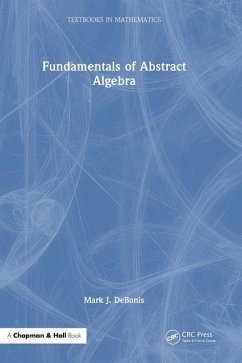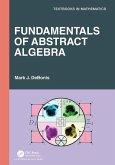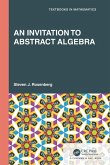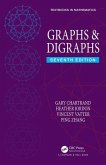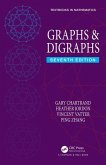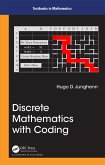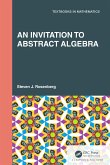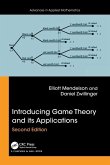Fundamentals of Abstract Algebra is a primary textbook for a one year first course in Abstract Algebra, but it has much more to offer besides this. The book is full of opportunities for further, deeper reading, including explorations of interesting applications and more advanced topics, such as Galois theory. Replete with exercises and examples, the book is geared towards careful pedagogy and accessibility, and requires only minimal prerequisites. The book includes a primer on some basic mathematical concepts that will be useful for readers to understand, and in this sense the book is self-contained.
Features
Self-contained treatments of all topicsEverything required for a one-year first course in Abstract Algebra, and could also be used as supplementary reading for a second courseCopious exercises and examples
Mark DeBonis received his PhD in Mathematics from the University of California, Irvine, USA. He began his career as a theoretical mathematician in the field of group theory and model theory, but in later years switched to applied mathematics, in particular to machine learning. He spent some time working for the US Department of Energy at Los Alamos National Lab as well as the US Department of Defense at the Defense Intelligence Agency, both as an applied mathematician of machine learning. He held a position as Associate Professor of Mathematics at Manhattan College in New York City, but later left to pursue research working for the US Department of Energy at Sandia National Laboratory as a Principal Data Analyst. His research interests include machine learning, statistics and computational algebra.
Features
Self-contained treatments of all topicsEverything required for a one-year first course in Abstract Algebra, and could also be used as supplementary reading for a second courseCopious exercises and examples
Mark DeBonis received his PhD in Mathematics from the University of California, Irvine, USA. He began his career as a theoretical mathematician in the field of group theory and model theory, but in later years switched to applied mathematics, in particular to machine learning. He spent some time working for the US Department of Energy at Los Alamos National Lab as well as the US Department of Defense at the Defense Intelligence Agency, both as an applied mathematician of machine learning. He held a position as Associate Professor of Mathematics at Manhattan College in New York City, but later left to pursue research working for the US Department of Energy at Sandia National Laboratory as a Principal Data Analyst. His research interests include machine learning, statistics and computational algebra.

